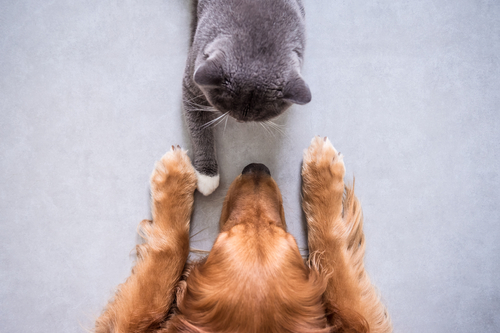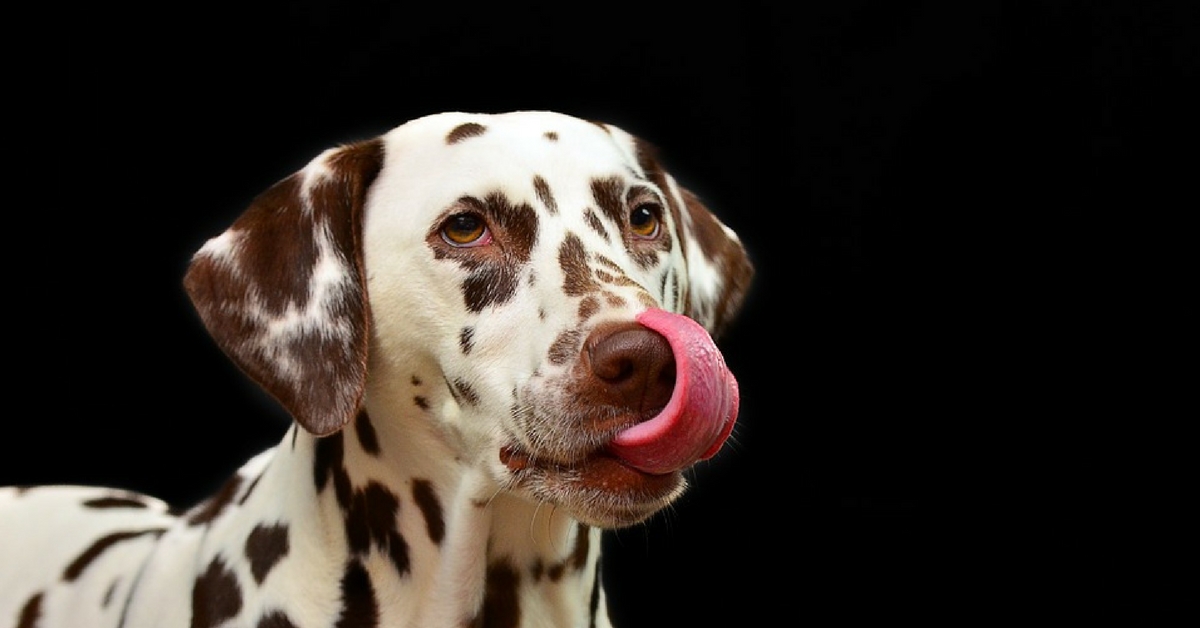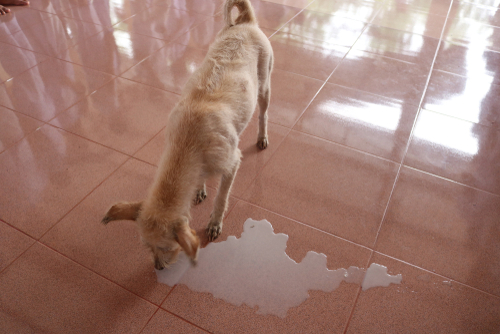Are the Contents of Your Household Cleaner Secretly Harming Your Pet’s Health?
The very products that claim to clean and disinfect our homes could be damaging the health of our pets. Is your cleaner pet-safe?

New pet parents pull out all the stops when caring for a new four-legged addition to the family. From caring for their health through regular vaccinations and deworming to stocking up on grooming supplies, food and treats, there are many ways to keep your furry friend safe. healthy and well cared for. But, did you know that even as you are doing all you can for your pet, there are hidden sources of danger in your home that could be hazardous for them?
Animals can be messy creatures, and a home with pets requires more frequent cleaning. Yet, the very products that we use to clean our homes daily pose a bigger threat to our pet’s health than the germs they claim to destroy. Cleaning products that contain ammonia, bleach, formaldehyde and strong fragrances can cause allergies, disfunction, damage and sometimes even death.
‘The Better Home’ brought to you by ‘The Better India’
We created ‘The Better Home’ because you shouldn’t have to choose between non-toxic ingredients and effective cleaning. Our cleaners are safe for babies, pets, skin and our oceans.
Explore our range of powerful, earth-friendly cleaners here.
Why Are Pets more Susceptible to Toxins in Floor Cleaners than Us?

Dogs and cats are innately curious and their behaviour, such as their curiosity and tendency to explore, puts them at increased risk of poisoning by potentially harmful substances. Since they spend a large part of their time indoors, they are exposed to particulate matter from Volatile Organic Compounds (VOCs) and toxic fumes released by these cleaners which continue to be suspended in the air long after the cleaning is complete and the bottle closed and locked away.
Further, since they conduct much of their lives on the floor or close to it, they are susceptible to ingesting toxins when they lick the floor or eat food off it; absorb them through the delicate skin on their footpads and noses, and carry them in the dust and debris on their fur. Pets with injuries and open wounds are at an even bigger risk of chemical poisoning.
Sometimes, animals find it hard to resist drinking out of the toilet bowl or a bucket of mop water. Instead of a cool, safe drink, they might be lapping up a cocktail of poisonous cleaning products. Since animals groom themselves by licking, dermal exposure to toxins can quickly lead to ingestion and internal damage.
There is always the danger of your pet accidentally ingesting your cleaner and exposing themselves to risk. All it takes is a loosely capped bottle, a toxic cleaner stored within easy reach or a cleaning cabinet left open.
Also, because your pet is significantly smaller than you in size, chemicals enter their respiratory systems and bloodstream much faster. Some chemicals, such as chlorine tend to settle in low-lying areas that pets frequent. Smaller organs of elimination (kidneys, lungs, liver) mean that when exposed to toxins, their bodies have to work much harder to get rid of them. Our pets also have shorter life spans, and unlike us, they lack the luxury of time to eliminate poisons slowly. Over time, the toxins build up in their systems, manifesting as organ damage, skin irritation or breathing difficulty.
While an animal’s instinct might deter it from licking a strong-smelling, foul-tasting cleaner, sometimes accidental ingestion cannot be avoided. It is thus, up to us to provide the safest environment for our animals.

What Ingredients in Household Cleaners are Harmful to your Pet?
Ammonia: Often named ammonium hydroxide in floor cleaners, ammonia may be an effective disinfectant, but it is highly toxic to animals and humans. When inhaled or ingested, it is corrosive to the mouth, gut, skin, eyes and lungs.
Bleach: Chlorine and chlorine-based bleach can be harmful when inhaled, ingested or imbibed through the skin. It causes breathing trouble, dizziness, vomiting and stomach irritation. It can also damage the eyes and cause redness and watering. Animals use their sense of smell to navigate their surroundings. The overpowering smell from bleach reacts with your dog’s olfactory receptors, damaging them. In extreme cases, repeated exposure to bleach can even result in nose blindness, a condition where dogs can no longer smell or process the scents around them.
Fragrances: The term ‘fragrance’ is often used on cleaners as a catch-all term for a bouquet of chemicals that can play havoc with the sensitive noses of animals. They are known to cause breathing difficulties, headaches, nausea and dizziness. The smaller the animal, the more damaging is the impact of fragrances.
Phenols: Any ingredient that ends with ‘ols’ is a phenol – a volatile chemical that most cleaning products contain, especially floor cleaners. Although they aren’t dangerous when diluted, in a concentrated form, phenols can be corrosive to the skin, mucous membranes and digestive tract when touched, inhaled or ingested.
How to Choose a Cleaner that has Your Pet’s Health at Heart?

Take a look at the label on any of your household cleaning products. Chances are it does not list any ingredients. If it does, you will find at best an incomplete list. This is because manufactures are not legally obligated to disclose these formulations as they constitute proprietary material.
So how do you know whether a cleaner is safe for you and your pet?
- Look for cautionary information such as ‘Keep out of reach of children/ children and pets’ and ‘Harmful if ingested’. These signs are immediate red flags. Such products are best avoided
- Like your pet does, use your nose as your guide: Products with harsh smells can be irritants. Smaller creatures such as hamsters and birds are the worst affected by strong perfumes
- Choose a pet-friendly cleaner free of the above-mentioned ingredients that could harm your pet
Our animals probably spend more time indoors than we do. They also rely on us for food, water and shelter and are incapable of telling us if they are suffering. As pet parents, it is up to us to make safe choices in the products we use to clean our homes.
Like this story? Or have something to share?
Write to us: [email protected]
Connect with us on Facebook and Twitter.
This story made me
- 97
- 121
- 89
- 167
Tell Us More
We bring stories straight from the heart of India, to inspire millions and create a wave of impact. Our positive movement is growing bigger everyday, and we would love for you to join it.
Please contribute whatever you can, every little penny helps our team in bringing you more stories that support dreams and spread hope.



















